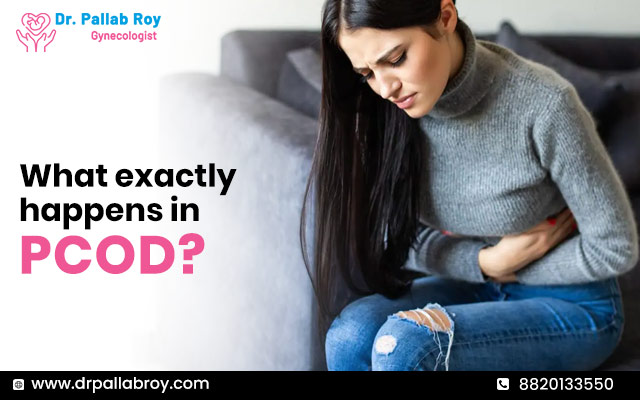The medical term Polycystic Ovarian Disease (PCOD) refers to a medical condition that is common in which a female’s ovaries generate immature or partially mature eggs in great numbers during reproductive age. To receive a proper diagnosis, visit the best gynecologist for PCOD treatment near you.
What happens in PCOD?
As mentioned above, PCOD is a condition where a woman’s ovaries generate partially mature eggs. These eggs develop into cysts in a female’s ovaries over a period of time. Due to the cysts, ovaries tend to become large and give out large amounts of male hormones known as androgens. This leads to infertility issues, irregular periods, unwanted weight gain and other health issues. The signs associated with PCOD usually leave a lasting impact on a female’s physical and mental well-being.
Problems that PCOD causes
PCOD may cause the following:
- Mood swings
- Lack of self-confidence and motivation
- Negative social relationships
- A disruption in sleeping and eating patterns.
- Negative self-image
Symptoms of PCOD
PCOD typically affects the ovaries, which are part of a woman’s reproductive system. The ovaries are associated with the production of estrogen and progesterone and the release of androgen. PCOD disrupts this process and leads to an abnormal release of male hormones.
Here are a few common signs of PCOD issues –
- Excessive bleeding during periods.
- Excess body hair
- A skin condition known as acne.
- Issues in pregnancy
- Infertility
- Sleeping disorders
- Depression
- Skin darkening in the neck region
- Irregular periods
- Hair loss
The highly certified gynecologist specialises in providing effective PCOD treatment near you.
Causes
According to studies, PCOD may have both genetic as well as environmental causes. PCOD is normally associated with the following –
- Consuming unhealthy food
- Pollution
- An inactive lifestyle.
- Hormone changing medicines
- Over the counter medication
In some instances, PCOD problems may also be considered hereditary. Several physiological causes that may result in increasing the risk of developing PCOD are as follows:
- The excess production of insulin.
- Low-grade inflammation in the body.
- High androgen levels.
Diagnosis
Diagnosis is important in getting a solution to PCOD problems. It usually starts with a physical exam and considering the history of symptoms, then some tests are recommended, such as a blood test and pelvic ultrasound. Moreover, while undergoing treatment, the following tests may be suggested to periodically monitor a female’s health:
- Insulin levels
- Lipid profile
- Blood sugar levels
- Hormone tests.
Conclusion
An understanding of PCOD symptoms and causes is vital for effective management. Consult with a gynecologist for PCOD treatment near you to treat the symptoms of this condition before it gets more severe.

